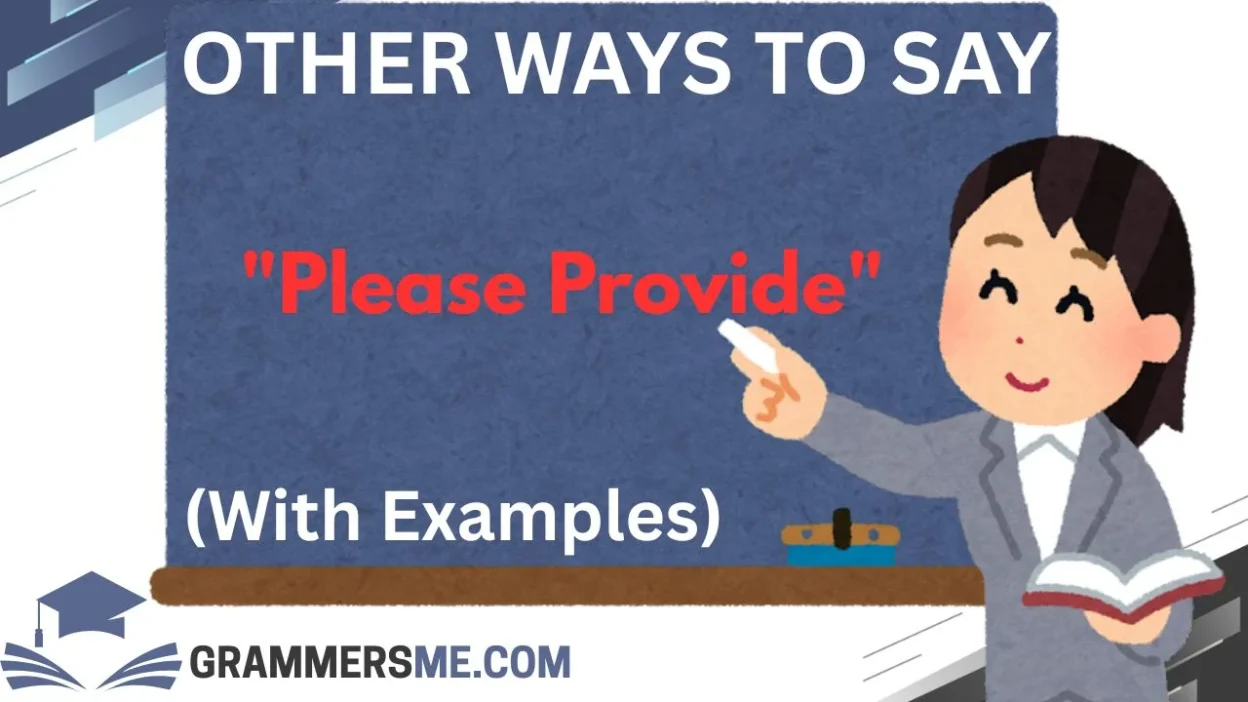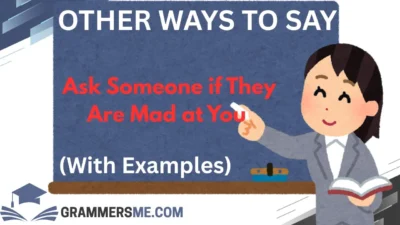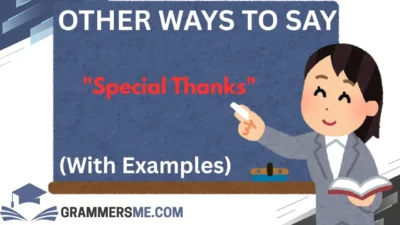When we communicate, the words we choose can either strengthen or weaken the connection with our audience. Using the right words is more than just about being clear; it’s about conveying warmth, respect, and care. Whether in professional emails, casual conversations, or even during negotiations, finding the right alternative to “please provide” can make your communication feel more thoughtful and meaningful.
In this article, we’ll explore 30 different ways to say “please provide,” so you can use the phrasing that best suits the situation and the tone you want to convey.
What Does “Please Provide” Mean?
The phrase “please provide” is a polite request for something—usually information, documents, or help. It’s a direct and neutral way to ask for something, but depending on the context, it can sound a little too formal or impersonal. Understanding the various ways to express this request allows you to adapt your language to be more empathetic and considerate, making the other person feel more valued.
Is It Professional/Polite to Say “Please Provide”?
Yes, “please provide” is both professional and polite, but in some cases, it can sound a little stiff. In settings where you want to express more warmth or build a better rapport, it’s helpful to use softer, more personable alternatives. This is particularly important when you’re engaging with clients, coworkers, or people you’re trying to build a relationship with, as it demonstrates attentiveness and emotional intelligence.
1. Could You Kindly Share
Meaning: A courteous and considerate request to have something shared.
Detailed Explanation: This phrase softens the directness of “please provide” by adding a touch of kindness. It’s often used when requesting information in a way that makes the other person feel appreciated.
Scenario Examples:
- “Could you kindly share the report by end of day?”
- “Could you kindly share your thoughts on this?”
Best Use: When you want to sound extra polite without being too formal.
Not Use: In very casual settings, where a more relaxed tone is expected.
2. Would You Mind Sharing
Meaning: A gentle way to ask someone to provide something, framed as a question that acknowledges their possible inconvenience.
Detailed Explanation: By phrasing the request this way, you’re showing respect for the other person’s time and efforts, making the request feel more considerate.
Scenario Examples:
- “Would you mind sharing your feedback on this presentation?”
- “Would you mind sharing the document with me when you have a moment?”
Best Use: Ideal for situations where the recipient is busy, and you want to acknowledge that you’re asking for their help.
Not Use: When urgency is involved and you need a direct request.
3. Can You Provide
Meaning: A simple and direct request for someone to supply something.
Detailed Explanation: This is a straightforward and clear way to ask for something. It’s a bit more casual and less formal than “please provide,” but still polite.
Scenario Examples:
- “Can you provide the updated files by tomorrow?”
- “Can you provide me with an overview of the project?”
Best Use: When a direct approach is acceptable, and the tone doesn’t need to be overly formal.
Not Use: In situations requiring a higher level of politeness or formality.
4. Would You Be Able to Provide
Meaning: A polite way of asking if someone can provide something, while showing consideration for their ability to do so.
Detailed Explanation: This request is softer and less imposing than simply saying “please provide” because it acknowledges that the person might not be able to fulfill the request at the moment.
Scenario Examples:
- “Would you be able to provide the report by Friday?”
- “Would you be able to provide me with some guidance?”
Best Use: In professional or formal contexts where you want to be considerate of the other person’s time and capacity.
Not Use: In casual, fast-paced environments where people are used to direct requests.
5. I Would Appreciate It If You Could Share
Meaning: This is a more formal and polite way to request something, conveying gratitude in advance.
Detailed Explanation: Adding “I would appreciate it” shows that you’re acknowledging the other person’s effort in advance. It conveys respect and gratitude, making it feel more personal.
Scenario Examples:
- “I would appreciate it if you could share the details by noon.”
- “I would appreciate it if you could share the documents for review.”
Best Use: When you want to show genuine appreciation and respect in your request.
Not Use: In casual or informal conversations where a less formal tone is acceptable.
6. Could You Kindly Provide
Meaning: A formal and polite way to request that something be provided, with a gentle tone.
Detailed Explanation: The inclusion of “kindly” makes the request sound very courteous. It’s perfect for formal communication or when you want to emphasize respect.
Scenario Examples:
- “Could you kindly provide me with your availability next week?”
- “Could you kindly provide the requested information?”
Best Use: In formal emails or when you want to convey utmost politeness.
Not Use: In informal settings where a more casual phrasing is more suitable.
7. Would It Be Possible to Provide
Meaning: A polite way to inquire if someone can provide something, while offering them a sense of flexibility.
Detailed Explanation: By using “would it be possible,” you’re acknowledging that the request may not always be feasible and giving the person an opportunity to say no if necessary.
Scenario Examples:
- “Would it be possible to provide the documents by tomorrow?”
- “Would it be possible to provide more details on this?”
Best Use: When you want to keep the tone polite and flexible, particularly in situations where there’s a chance the person may not be able to comply.
Not Use: In situations where you need the answer quickly or without room for negotiation.
8. Could You Send Over
Meaning: A more casual way to ask someone to send or provide something.
Detailed Explanation: This phrasing is less formal but still polite. It works well in less formal work environments or with people you already have a friendly rapport with.
Scenario Examples:
- “Could you send over the slides before the meeting?”
- “Could you send over the file when you get a chance?”
Best Use: In a more relaxed professional environment or when asking a colleague or friend for something.
Not Use: In formal situations where a more structured approach is needed.
9. Please Share
Meaning: A straightforward and polite way to request that something be shared with you.
Detailed Explanation: This is a simplified version of “please provide” that’s easy to use in both formal and informal settings. It’s direct but still polite.
Scenario Examples:
- “Please share the updated version of the document.”
- “Please share the details of your availability.”
Best Use: In professional emails where clarity and brevity are needed.
Not Use: In situations where a warmer tone is expected.
10. Would You Mind Sending
Meaning: This is a polite, gentle way to request that something be sent to you, phrased as a question to acknowledge the other person’s effort.
Detailed Explanation: Using “Would you mind” softens the request and makes it feel more like a favor, which can be helpful when you’re making a request of someone who may be busy.
Scenario Examples:
- “Would you mind sending over the presentation when you have time?”
- “Would you mind sending me the link to the resource?”
Best Use: When making a polite request for something that isn’t urgent.
Not Use: When time is a critical factor, and you need something quickly.
11. Can You Share
Meaning: A straightforward, casual way of asking someone to share something.
Detailed Explanation: A casual version of “please provide,” which is slightly less formal but still polite enough for most workplace communication.
Scenario Examples:
- “Can you share the final draft with me?”
- “Can you share the details of the meeting?”
Best Use: In informal settings or with colleagues you are familiar with.
Not Use: In formal requests or if the relationship requires a more polite approach.
12. May I Request
Meaning: A polite and formal way to ask for something.
Detailed Explanation: This phrase is commonly used in professional or formal settings where extra politeness is required. It sounds respectful and acknowledges the recipient’s authority or role.
Scenario Examples:
- “May I request a copy of the final report?”
- “May I request your feedback on this matter?”
Best Use: In formal emails, legal settings, or when speaking to someone senior.
Not Use: In casual conversations, where it might sound overly formal.
13. Do You Happen to Have
Meaning: A soft and indirect way to ask if someone has something available.
Detailed Explanation: This phrase is helpful when you don’t want to sound demanding. It makes the request feel lighter, giving the other person the option to say no.
Scenario Examples:
- “Do you happen to have a copy of last week’s meeting notes?”
- “Do you happen to have the latest sales figures?”
Best Use: When making informal or indirect requests, especially when unsure if the recipient has what you need.
Not Use: When you need something urgently and want a direct request.
14. Would It Be Possible for You to Send
Meaning: A polite, professional way to ask if someone can send something.
Detailed Explanation: This phrase makes the request sound flexible, allowing the recipient to respond based on their availability.
Scenario Examples:
- “Would it be possible for you to send the contract for review?”
- “Would it be possible for you to send over the slides before noon?”
Best Use: In business emails or formal requests where you want to be extra courteous.
Not Use: When requesting something from a close colleague in an informal setting.
15. I Would Be Grateful If You Could Provide
Meaning: A very polite way to express appreciation while making a request.
Detailed Explanation: By using “grateful,” this phrase conveys warmth and appreciation, making the request sound sincere.
Scenario Examples:
- “I would be grateful if you could provide the updated contract.”
- “I would be grateful if you could provide any insights on this issue.”
Best Use: When requesting something in a formal setting and wanting to sound appreciative.
Not Use: In fast-paced environments where a direct request is more efficient.
16. Could I Get a Copy of
Meaning: A casual way to ask for something to be provided.
Detailed Explanation: This phrase works well in informal settings and is often used in workplace chats or with colleagues.
Scenario Examples:
- “Could I get a copy of the marketing plan?”
- “Could I get a copy of the latest budget report?”
Best Use: In everyday office conversations or when requesting something from a peer.
Not Use: In highly formal settings where a more respectful phrasing is needed.
17. Please Send Me
Meaning: A simple, direct way to ask for something.
Detailed Explanation: This is one of the most efficient ways to request information, often used in emails or quick messages.
Scenario Examples:
- “Please send me the latest sales numbers.”
- “Please send me the updated schedule.”
Best Use: When you need something quickly and directly without excessive politeness.
Not Use: When speaking to senior professionals or when you want to sound more considerate.
18. Would You Be Willing to Share
Meaning: A polite way to ask someone if they are comfortable providing something.
Detailed Explanation: This phrase is great when asking for sensitive information or when you want to make the request sound optional rather than demanding.
Scenario Examples:
- “Would you be willing to share your thoughts on this proposal?”
- “Would you be willing to share the contact details of the vendor?”
Best Use: When making a request that involves personal, confidential, or extra effort from the recipient.
Not Use: When you need something immediately or when the request is straightforward.
19. Mind Sending Over
Meaning: A casual and friendly way to request something.
Detailed Explanation: This phrase keeps things light and informal while still being polite.
Scenario Examples:
- “Mind sending over the meeting agenda?”
- “Mind sending over the photos from the event?”
Best Use: In informal settings or when asking colleagues or friends for something.
Not Use: In professional or highly formal communication.
20. Would You Kindly Forward
Meaning: A respectful and polite way to ask for something to be forwarded.
Detailed Explanation: This phrase is commonly used in emails when requesting documents, messages, or other forwarded information.
Scenario Examples:
- “Would you kindly forward the email chain to me?”
- “Would you kindly forward the latest client request?”
Best Use: In formal emails and professional settings.
Not Use: In casual conversations, where a simpler phrase like “Can you forward” would be better.
21. Can You Send Me a Copy of
Meaning: A straightforward way to ask for something to be sent.
Detailed Explanation: This phrase is commonly used in workplaces when requesting documents or information.
Scenario Examples:
- “Can you send me a copy of the final contract?”
- “Can you send me a copy of last month’s sales report?”
Best Use: In business or office settings where a clear request is necessary.
Not Use: In extremely formal settings where a more polished phrase is preferable.
22. Might You Be Able to Provide
Meaning: A very polite and formal way to ask for something.
Detailed Explanation: This phrase is useful when making requests where you want to sound as respectful as possible.
Scenario Examples:
- “Might you be able to provide the updated statistics?”
- “Might you be able to provide additional details?”
Best Use: In highly professional or diplomatic settings where a polished tone is needed.
Not Use: In casual or urgent requests, as it can sound overly formal.
23. Could I Possibly Get
Meaning: A polite and humble way to request something.
Detailed Explanation: This phrase adds an extra level of politeness by using “possibly,” which makes the request sound more tentative and considerate.
Scenario Examples:
- “Could I possibly get a copy of the meeting minutes?”
- “Could I possibly get an update on the project timeline?”
Best Use: When you want to sound extra polite and not imposing.
Not Use: When requesting something in a fast-paced environment where directness is preferred.
24. Would It Be Alright If You Sent
Meaning: A polite way to ask if someone is comfortable sending something.
Detailed Explanation: This phrase gives the recipient the option to say no, making it a great way to ask for something without sounding too demanding.
Scenario Examples:
- “Would it be alright if you sent me the new client list?”
- “Would it be alright if you sent over the final edits?”
Best Use: When asking for something in a non-urgent, polite manner.
Not Use: In situations requiring a strong, direct request.
25. If You Could Kindly Provide
Meaning: A highly polite and formal way to request something.
Detailed Explanation: This phrase combines both “if you could” and “kindly,” making it one of the most respectful ways to ask for something while also implying appreciation in advance.
Scenario Examples:
- “If you could kindly provide the updated budget sheet, I’d greatly appreciate it.”
- “If you could kindly provide your insights on this, that would be very helpful.”
Best Use: In professional or formal emails where an extra level of politeness is required.
Not Use: In fast-moving environments where brevity is valued.
26. At Your Convenience, Please Share
Meaning: A polite way to ask for something while allowing the other person to provide it on their own time.
Detailed Explanation: This phrase shows consideration for the recipient’s schedule and avoids pressuring them. It’s especially useful when requesting something non-urgent.
Scenario Examples:
- “At your convenience, please share the finalized proposal.”
- “At your convenience, please share the client’s feedback.”
Best Use: When making non-urgent requests in professional settings.
Not Use: When you need something immediately or within a deadline.
27. Could You Arrange to Send
Meaning: A structured way to ask someone to make arrangements to provide something.
Detailed Explanation: This phrase implies that there may be some effort involved in sending the requested item, making it useful when requesting logistical or planned actions.
Scenario Examples:
- “Could you arrange to send the training materials before Monday?”
- “Could you arrange to send the invoice to the finance team?”
Best Use: In workplace communication when requesting someone to take action.
Not Use: In casual conversations where a simpler request would work.
28. Would You Happen to Be Able to Send
Meaning: A very polite and indirect way of requesting something.
Detailed Explanation: This phrase allows the recipient to decline without feeling pressured, making it perfect for scenarios where you’re unsure if they can fulfill your request.
Scenario Examples:
- “Would you happen to be able to send the updated schedule?”
- “Would you happen to be able to send over last year’s performance reports?”
Best Use: When making a request that the recipient might not be able to fulfill.
Not Use: When requesting something time-sensitive that requires a direct ask.
29. Could You Drop Me a Copy of
Meaning: A casual and friendly way to request a document or piece of information.
Detailed Explanation: Using “drop me a copy” makes the request feel laid-back, which is great for informal workplace communication.
Scenario Examples:
- “Could you drop me a copy of the presentation?”
- “Could you drop me a copy of your notes from the meeting?”
Best Use: In informal workplace settings or when communicating with colleagues.
Not Use: In highly professional or formal business emails.
30. Would You Kindly Make Available
Meaning: A formal and polite way to ask for something to be provided or made accessible.
Detailed Explanation: This phrase is particularly useful when requesting documents, reports, or data that need to be officially made accessible.
Scenario Examples:
- “Would you kindly make available the updated contract?”
- “Would you kindly make available the training materials for new employees?”
Best Use: When making a formal request in professional settings.
Not Use: In casual or informal situations where a simpler phrase would be more appropriate.
Conclusion
The way you ask for something can make a big difference in how your request is received. While “please provide” is a perfectly acceptable phrase, varying your wording based on context, tone, and relationship with the recipient can help foster better communication.
Whether you’re aiming for a polite, formal, friendly, or casual approach, these 30 alternatives will help you craft your requests more thoughtfully and effectively.
FAQs
1. Which alternative is best for professional emails?
Phrases like “Would you be able to provide” or “Could you kindly share” work well in professional emails as they sound respectful and polished.
2. What’s the most casual way to ask for something?
If you’re in an informal setting, something like “Can you send over” or “Mind sending over” keeps the tone light and friendly.
3. How can I make my request sound more polite?
Adding words like “kindly,” “would you mind,” or “I would appreciate it if” makes your request sound more thoughtful and considerate.
4. Which phrase should I use when I need something urgently?
For urgent requests, “Please send me” or “Can you provide” keeps it clear and to the point.
5. Are these alternatives suitable for customer service emails?
Yes! In customer service, phrases like “At your convenience, please share” or “Would you kindly make available” help maintain professionalism while ensuring a positive tone.




